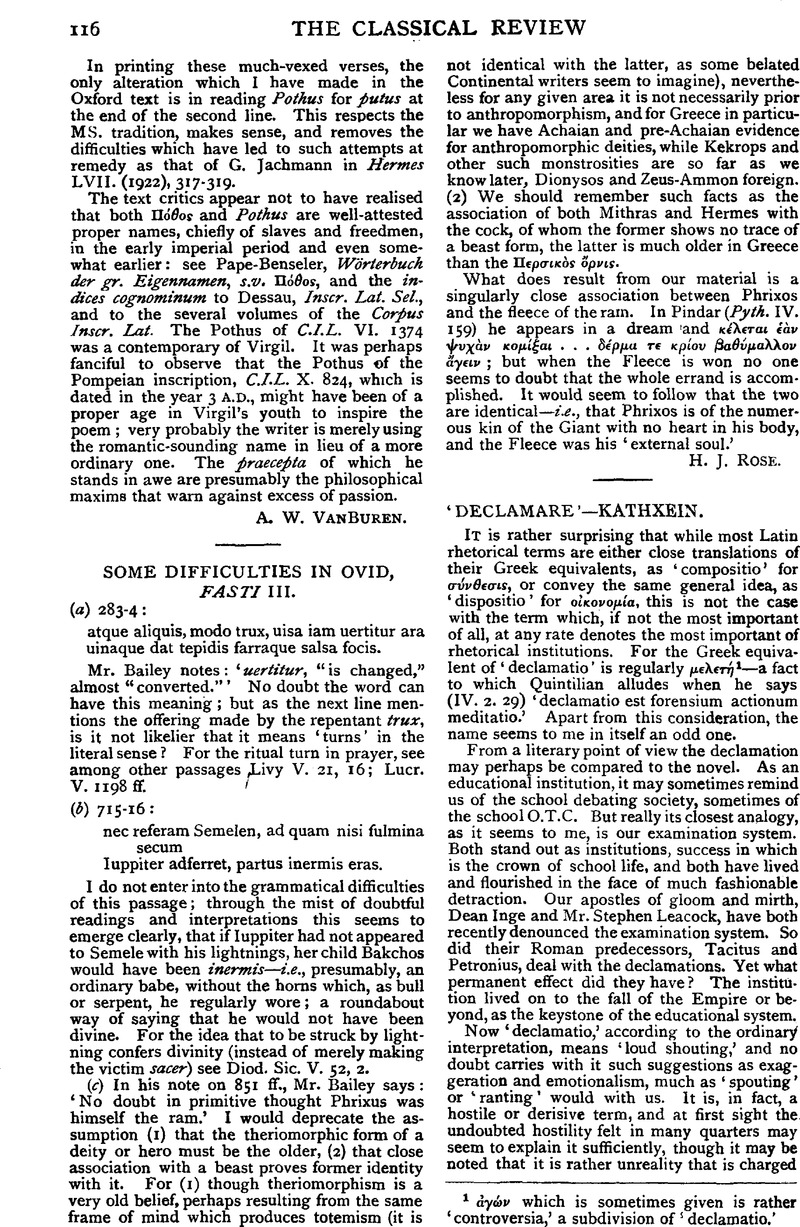No CrossRef data available.

page 116 note 1 ἀγών which is sometimes given is rather ‘controversia,’ a subdivision of ‘declamatio.’
page 117 note 1 Quintilian hits off the common note of depreciation when (V. 12, 17) he speaks of the declamations as ‘praepilatae,’ foils with the button on, and says that they ‘nervis carent.’
page 117 note 2 It might well, of course, become contaminated with the hostile sense at quite an early period.
It has been suggested to me that ‘declamation’ may have been a translation of ἀναφώνησις. This word seems to be used by Galen and Plutarch for exercises in voice production, but I can find no grounds for thinking that it was ever used for the rhetorical μελετή.
page 117 note 3 Hist, of Annotation, p. 31.
page 117 note 4 In Att. XV. 12 Cicero, in discussing (B.C. 44) Octavian's probable attitude, puts on the unfavourable side ‘quid aetati credendum sit, quid nomini, quid hereditati, quid καιηχήσει? Tyrrell and Rutherford (I.c.) take the word to mean ‘education.’ I think it means rather the advice which he hears from those around him, just as Cleanthes (Diog. Laert. VII. 89) said ![]() .
.
page 117 note 5 Vit. Sofih. I. 23.
page 117 note 6 De Or. III. 93 and Ap. Suet. Rhet. 4.
page 117 note 7 So Boissier (Mélanges Perrot, p. 15). I think the difference between the two types, though probably including a different attitude to the μελετή, goes deeper. The one discouraged, and the other encouraged, any popular element. Marx (Prol. to Ad Herenn. 147 ff.) may be right to some extent in thinking that the question had a political aspect. Plotius was certainly a friend of Marius.
page 117 note 8 Inst. Or. II. 1. 1, compared with I. 9. 6.
page 117 note 9 If Rutherford is right in his idea of the origin of κατηχεῖν as a scholastic term (υ. note above) there is of course no development. The term applies to pupil as much as to teacher.
page 117 note 10 Perhaps more especially in the scholastic and academical world—e.g., classics itself, wrangler, secondary school, composition, which, I presume, eighty years ago, meant composing (ostensibly) original Latin verse and prose. Many such changes of meaning come from abbreviation, and I should not be surprised if there was an intermediate period when the rhetorical performance was called ‘declamatio meditative’= κατήχησις μελετηρά.
page 117 note 11 Contr.I., Proem. 12.